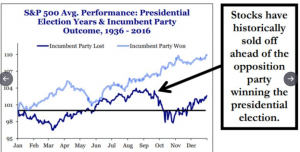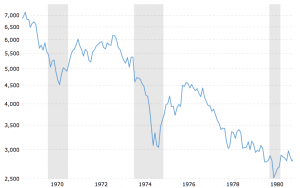“Daddy, what did YOU do in the Great War?” was the teaser line in a recruitment poster used by the British Army in 1915. Nowadays there are no great wars. No teasing either, as Fawlty Towers fans have recently discovered. Wars are now cultural and the war against racism is finally going mainstream. The scale of street protests across the globe in support of Black Lives Matter have not been seen since 1968. And that year of 1968 did resonate with me as a reference point. On lots of levels actually.
China in that tumultuous year was in the throes of social and political chaos as Mao Zedong sought to reassert his authority in bloody fashion. The current political crack down in Hong Kong is thankfully less brutal at this point but Western observers should not be so quick to judge. The US in 1968 was horribly divided over the Vietnam War but at least there was bipartisan agreement that the USSR was the enemy.
The nation needed a unifying belief to overcome the horrors of MLK and Bobby Kennedy assasinations, a rogue Nixon administration and endless body bags returning from Indochina. Not so today.
These are very different days. Sure, military-style crack downs on the streets of Washington DC and other US cities in recent weeks have highlighted an increasingly polarised political and social environment in the world’s most powerful nation. However, there is an incredible lack of common ground across the US as to how to fight two deadly foes today. The current occupant of the White House and at least 40% of the US electorate seem to think the explosion of the Covid-19 virus in GOP-governed states and Russo-Taliban bounties on the heads of its servicemen in Afghanistan do not merit any protective action. Arguably, both are now the biggest single threats to US democracy.
Fox News chyrons might even use the “War on…….” headlines but that wouldn’t really fit the current editorial skew. However, this is where it gets interesting. Another war, the war against racism, is starting to impact voter intentions. The Atlantic magazine has been around since 1857 so it has seen plenty but a recent article by David Graham really caught the eye. The opening line expressed a view held not just in Wall Street but in most of the major capitals of the world – “ the only thing more futile than looking for Donald Trump to pivot was expecting the American people to do so”. Depressing, but probably true. Until now.
In the past few weeks something has changed. Joe Biden is now leading Trump in most polls by double digit percentages. But the driver is neither the economy nor the White House response to the pandemic. Both issues when surveyed by Siena/New York Times generate approval ratings in line or above his overall low approval. Instead, the driver of the Trump poll implosion appears to be race. Both the New York Times and Harris/Harvard surveys show approval ratings on race relations well below overall approval rates. That is stunning because usually Trump exploits racial tension to rally his base support. The “very fine people” tweets, the “white power” videos and the “looting starts, shooting starts” dog whistles are no longer having a positive poll impact, particularly with white females. Dare we hope for a panic of conscience?
That is not the only area of panic. By all accounts financial advisors on Wall Street are warning wealthy clients of a Biden election win and higher taxes ahead. Whatever about tax evasion strategies, there also seems to be some early evasive moves by the GOP establishment to prepare for a ‘social distancing’ strategy towards the White House. The GOP goal is to protect suddenly vulnerable Senate seats in red states like Texas. Simultaneous leaks to the press on this defensive strategy appear more than a coincidence and one wonders whether the Taliban bounties were the final blow to the charade that Donald Trump puts the US first. A dawning realisation that the very rich, Russia, Trump properties, the energy sector and Saudi, and the domestic Christo-Taliban were the main beneficiaries of Trump’s transactional style of politics could prompt a very severe political and financial backlash.
The problem for stock markets is that, when incumbent parties lose elections, the sell-offs usually happen in the months preceding the election. This chart from the excellent John Authers at Bloomberg captures Wall Street’s fear of change as a well known phenomenon since 1936; note the S&P 500 rolling over in Sept/Oct when the opposition ends up winning in November:

It is not all about finance. There is a genuine cultural battle taking place in the US. Too many people who should know better have chosen to turn a blind eye to corruption, trampling of the Constitution, probable treason and, at the very least, culpable homicide on a large scale. So back to that war question at the beginning of this article and a potential distancing by former members of the Trump cult.
Here’s the five questions every Trump enabler won’t want to hear when interviewing over the next ten years for a position of responsibility – take your pick from board director, educational leader, financial advisor, senior management position, political appointment and practically any other fiduciary position.
1. When did you speak out about the racist overtones in White House communications?
2. Is there any written record of your unease about White House relations with the Kremlin and Russian interference with the US democratic process?
3. Did you share your concerns with anyone in authority about the President’s wilful undermining of the Constitution and the corruption of the Attorney General’s position and the Department of Justice?
4. Did four years and 18,000 recorded lies cause you to doubt the assurances of the President on public health in the face of the Covid-19 pandemic?
5. Were you still a member of the GOP in 2020?
The difficult question in the 1970’s was did you serve in ‘Nam? Vietnam was an embarassing foreign policy failure with huge human loss, and combined with the exit of Nixon from the White House in disgrace, the US psyche and confidence remained damaged throughout the 1970s. Confidence is key in financial markets. It evaporated and stock markets kept falling for the rest of the decade. This writer’s fear is that a modern day combination of presidential criminality and cultural turmoil will erode confidence once again. Think of 1968 and 1974 as a double whammy of social and political shock. Then check out this chart of the Dow Jones Index from 1968 to 1980:

A multi-year halving of asset values might sound overly gloomy but there is no doubt the growing prospect of a Biden win, and social backlash, could spook markets. Mark Twain, the great American humourist, was reputed to have given us the maxim about history not repeating itself but certainly rhyming. Look at that chart again and then archive footage of 1968 civil unrest plus an ignominious 1974 Marine One helicopter departure from the White House lawn. Then ask yourself what did YOU do, say or write in 2020….?









